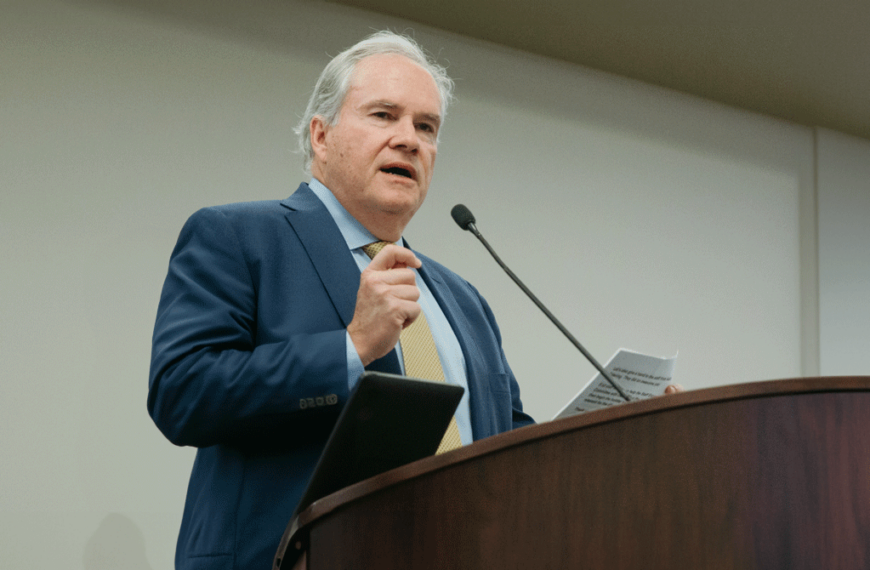This month, hospital advocates and Congress face a tense environment and a tight window.
Next week, lawmakers return to Washington, D.C. from their August work period – a period of about a month and a half in which members of the House of Representatives return to their districts, talk with constituents and get the lay of the land back home.
When members of the Texas congressional delegation return to D.C., they’ll quickly receive a welcome-back from the Texas Hospital Association. THA will send members of its advocacy team to Washington in mid-September to meet with lawmakers and their staffs about pending proposals that would harm hospitals, including payment cuts and onerous reporting burdens.
For THA, building the coalitions on these issues among Texas lawmakers will be paramount. But much like what THA faced in this year’s state legislative session, the environment won’t be an easy navigable one.
“The degree of scrutiny that I feel like hospitals are under right now, and over this last year, is something that I really haven’t seen in a while,” said Cameron Krier Massey, JD, MPH, a federal lobbyist for THA. “It is the reason for very focused engagement and advocacy – not just from THA, but also from our member hospitals to their elected officials.”
Time will also be a factor, Massey notes: the House will be in session for just 12 days in September before the federal fiscal year begins on Oct. 1. And from there, the House will be in session for just 36 days before the end of the year.
Here’s a look at some of the key issues THA will be engaged on as Congress returns.
Site-neutral payment cuts
THA, the American Hospital Association and other hospital advocates will be in full gear attempting to stop proposed cuts involving the expansion of site-neutral payment policies, including measures that already passed out of the House Energy & Commerce (E&C) and Ways & Means committees.
The concept behind “site-neutral” payments is just as it sounds: Whether receiving their care in a hospital outpatient department or in a physician’s office, patients would pay the lowest amount for that care.
THA and AHA have noted repeatedly that the higher costs associated with hospital outpatient visits are warranted and necessary: Hospitals generally treat sicker patients than physician outpatient settings do, and are subject to a much higher regulatory burden, along with more stringent licensing and accreditation standards. Site-neutral policies, and the cuts they bring for hospitals, slice into those facilities’ ability to care for patients – in a Medicare setting that already pays below cost.
Nonetheless, proposals to expand site-neutral payment structures – in this case, for drug administration services – have gained momentum in D.C. in recent months. The one that passed out of the Energy & Commerce Committee in May would institute site-neutral payments for drug administration services in previously grandfathered hospital outpatient settings – facilities that were carved out of previous site-neutral laws. For those hospital outpatient departments, a four-year phase-in would begin in 2025.
An AHA analysis of that proposal estimated a $54.2 million cut for hospitals in the first year alone, and a $3 billion reduction over 10 years. The AHA-estimated impact for Texas would be $1.4 million in year one and $74.5 million over 10 years.
Brad Holland, president/CEO of Hendrick Health in Abilene and chair-elect of THA’s Board of Trustees, notes that with the payment cuts that would accompany site-neutral expansion, hospitals don’t have the ability to pass increased costs on to their customers. Holland noted recent data from the THA-commissioned Kaufman Hall report, which showed nearly half of all Texas hospitals were in the red in 2022.
“If I make Hershey’s chocolate, and my cost of cocoa beans went up, I would just charge more for my Hershey’s chocolate bar,” he said. “In hospitals, we don’t have the luxury of doing that, because [with] Medicare, Medicaid, no-pays and the commercial payers, we get what we get.
“Because the inflationary costs over the last two years, three years, since the pandemic … are probably up 25% over those three years. And reimbursement from the government, or payers, is only up [by] single digits.”
Holland said the site-neutral concept “sounds like a great talking point” but would be catastrophic in practice.
“People think that it helps Medicare recipients and the payers … and their belief is it helps everybody,” he said. “But I believe that it’s an anti-hospital [concept]. The unintended consequence will devastate the hospital industry.”
The recent site-neutral proposals apply to drug administration services, but the impact hospitals fear goes well beyond what those bills themselves would bring.
“The concern is that Congress will move on to more expansive policies in the future,” Massey said. “E&C considered three different site-neutral policies. This one [that the committee passed] had the lowest financial impact. There were others that go all the way up to a $9 billion cut for Texas over a 10-year window.
“What is so concerning is the general trend or the direction that we may head in on site-neutral broadly. They’re just starting with drug administration services.”
Medicaid: DSH cuts and state payment programs
After Congress reconvenes, lawmakers will have the quickest of turnarounds in which to heed hospitals’ warnings on Medicaid disproportionate share hospital (DSH) payment cuts. If Congress doesn’t take action by Oct. 1, $16 billion worth of cuts will go into effect across fiscal years 2024 and 2025 – a vicious blow to safety net funding both in Texas and nationwide.
Back in April, Rep. Yvette D. Clarke (D-N.Y.) introduced the Supporting Safety Net Hospitals Act with two original cosponsors from the Texas delegation: Reps. Dan Crenshaw (R-Houston) and Michael Burgess, MD (R-Lewisville). Supported by both THA and AHA, the bill would repeal the $16 billion in cuts over the next two fiscal years.
Hospital voices will resume advocating for that legislation and any other steps to stave off or eliminate DSH cuts, and THA will continue efforts to build support from the rest of the Texas delegation.
THA will also be talking to lawmakers about the impact of a proposed rule by the Centers for Medicare & Medicaid Service (CMS) that would limit Texas’ and other states’ ability to draw down federal funds for their Medicaid programs. The CMS proposal, put forth in May, would give CMS broad authority to withhold or retroactively deny state-directed payment programs (SDPs) if the agency believes the program is financed with impermissible non-federal funds. It would also require hospitals participating in SDPs to attest in writing to not participating in “hold harmless” arrangements, or arrangements in which hospitals are reimbursed all or part of taxes they paid.
THA believes the rule is an overreach and that it would “accelerate Texas hospital closures, reduce service lines like OB-GYN, pediatrics, and behavioral health, limit access to care for low-income Texans, and leave the State of Texas holding the bag on an even larger financial Medicaid burden.”
Medicare 340B drug pricing
THA will also be engaged in discussions surrounding Medicare 340B, a key program that requires drug manufacturers participating in Medicaid to sell outpatient drugs at discounts to organizations that serve low-income patients and the uninsured. Pharmaceutical makers have pushed members of Congress to increase reporting and oversight on 340B, and have found some lawmakers willing to back such measures.
“Some of the things that are being considered now are additional reporting by 340B providers on how they are using those savings [and] how much charity care they’re providing,” Massey said. “Texas is in a little bit of a unique place on that issue specifically, because we have a pretty robust state law that requires reporting of charity care. So when we’ve talked with some of the delegation offices, we’ve actually shared how Texas could be a model for some of those federal reforms.
“But there is growing interest from both sides – Republicans, Democrats, House, Senate – on greater transparency in the program. Having hospitals report publicly how they’re reinvesting those savings is one of the ways that they are looking at doing that.”
Like AHA, THA is opposed to adding to the long list of mandates – reporting and otherwise – that hospitals already face and strongly supports the continuation of 340B, which allows hospitals to use the discounts on life-saving drugs and expand access to care.
Related articles from The Scope
Repeal of 2024 Cuts Are a Needed First Step to Protect Our Safety Net
Every piece of financial certainty our hospitals can get these days is appreciated – especially for the facilities that treat the most vulnerable Texans. For the rest of this year,…
Workplace Violence: Breaking a Cultural Norm
When the Texas Hospital Association pushed for key steps to protect health care workers from violence during last year’s state legislative session, it was trying to reverse a long-standing pattern…
How FQHCs Can Stay HRSA-Compliant
Health care compliance — adhering to rules, standards, policies, laws, and regulations related to medical practices — is about keeping operations running smoothly. It also promotes safe, high-quality care, and…
HOSPAC: Agents of Change
Out of all the ways the Texas Hospital Association pushes for better health care in Texas, HOSPAC – the only political action committee that represents all Texas hospitals – may…




